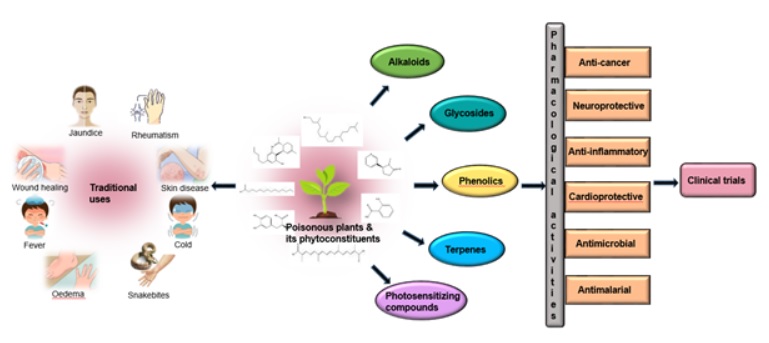Scientists have found out that the most poisonous plants found in Assam could be turned into most powerful healers and life-saving drugs.
Published on Jun 20, 2025
By EMN
Share

DIMAPUR — In what could change the future of medicine, scientists have unravelled a paradoxical truth that some of the most poisonous plants found in Indian state of Assam are among the most powerful healers and could be turned into life-saving drugs.
Researchers at the Institute of Advanced Study in Science and Technology (IASST), Guwahati, an autonomous institute of the Department of Science and Technology (DST) tracing the secrets held in the leaves, roots, and sap of the natural world, have comprehensively investigated various poisonous plant species and their phytochemical constituents, stated an update from Union Ministry of Science and Technology.
They also reviewed existing literature and identified 70 poisonous plant species that are used traditionally as well as in homeopathy to treat various illnesses, including fevers, colds, skin diseases and oedema, said the update.
The team was led by Prof. Ashis K. Mukherjee, Director of IASST and Bhagya Lakhmi Rajbongshi, Senior Research Fellow.
Plants produce phytochemicals, natural compounds used for their own survival, which can also affect human biology, they said, adding that while some are toxic, others hold immense medicinal promise when isolated and modified.
“Modern pharmacology is beginning to recognize the potential of these phytochemicals. These toxic compounds can be transformed into potent therapeutic agents with careful scientific processing,” read the update.
“The findings draw upon ethnopharmacology—how indigenous cultures use plants for healing. From treating snakebites to managing jaundice, these traditional remedies are now being re-evaluated through the lens of modern science. The implications are vast. With rigorous testing, these plants could help discover novel drugs for diseases still lacking effective treatment,” it added.
Stressing the importance of rigorous scientific validation before clinical use, the researchers said: “Toxicity must be carefully studied to ensure safety. The journey from folk remedy to FDA-approved medicine is long, but with studies like this, the first steps are being taken.”
It may be mentioned that humans have been using plants for their medicinal value to various illnesses since ancient times. Some plants are toxic but have phytochemicals, which has powerful healing quality if meticulously processed using scientific methods, according to the update.